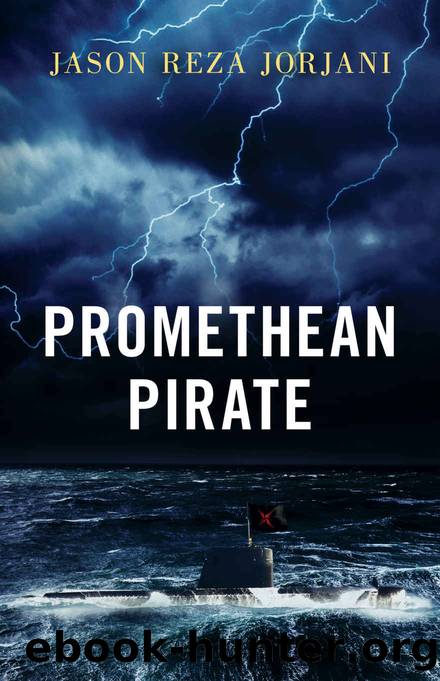Promethean Pirate by Jason Reza Jorjani

Author:Jason Reza Jorjani [Jorjani, Jason Reza]
Language: eng
Format: epub
Tags: uber man, faustian futurist
ISBN: 9781915755032
Publisher: Arktos Media Ltd.
Published: 2022-11-24T23:00:00+00:00
Chapter 4: Belial of Atlantis
If we want to dynamite Traditionalism at its foundation, as I do, then we need to ask the question of where, or when, the Counter-Tradition really began. Even if René Guénon saw the Counter-Initiation as coming to its culmination in Modernity, he also recognized that Modernity is not so much a particular epoch as it is a form of society. Was there, as Guénon himself suggests at times, a Modernity before the modern age? An ancient or primordial modernity? Indeed, there was, and it is there, or then, that we will find the origin of the Counter-Tradition. This primordial modernity of âAtlantisâ has been hidden from us by âthe godsâ precisely because what defined the character of that society was, above all, a Promethean rebellion that is the most original and authentic form of Counter-Traditionalism.
In approaching this subject, we face the problem that has been endemic to studies of groups such as the Gnostics or the Assassins. We are forced, for the most part, to reconstruct their worldview and way of life based upon the hostile heresiology of the Catholic Church or the Caliphate. Of all the sources concerning the rebels in Atlantis, on account of whose rebellion the civilization was supposedly destroyed, only Plato is somewhat neutral. The rest of our sources are vehemently hostile and literally demonize the rebel Atlanteans, seeing them as the first host of Satan. This is consistent with the biblical Books of Genesis and Enoch, through to the accounts of Rudolf Steiner, who calls the rebels âAhrimanic,â and the Sunday school teacher Edgar Cayce, who brands them âthe sons of Belial,â rising in opposition to the putatively divine so-called âLaw of One.â
Of course, there is one other source here that is supremely relevant and that is the myth of Prometheusâ ââ including the parts of it involving his brothers Atlas and Epimetheus (as well as the latterâs wife, Pandora) and the son of Prometheus, Deucalion, who is the Greek Noah. In order to really understand Cayceâs âBelialâ group, which Steiner brands as âAhrimanic,â on its own terms through a reconstruction of its own perspective, we need to identify convergences in the various âAtlantisâ or âFallen Angelâ narratives, establish the terminological equivalents across these narratives, and extract the core elements of this occulted history from the moralistic propaganda that has hitherto enmeshed them. Then the story can be reread through the lens of the mythos and ethos of the Promethean rebellion.
There are a handful of key elements to this story, which are common to every significant version of it, and which very likely point to a hidden history that haunts our world to this day. The first element is that long, long ago, the world of mortals was much more directly administered by âgodsâ or âangels.â These seemingly âimmortalâ beings hid âheavenly secretsâ from mere mortals, who served these divine beings more or less as a race of slaves, ignorant of the purposes and motivations of their masters. Plato calls these masters the Olympian gods.
Download
This site does not store any files on its server. We only index and link to content provided by other sites. Please contact the content providers to delete copyright contents if any and email us, we'll remove relevant links or contents immediately.
The remains of the day by Kazuo Ishiguro(7577)
Tools of Titans by Timothy Ferriss(6966)
The Black Swan by Nassim Nicholas Taleb(6205)
Inner Engineering: A Yogi's Guide to Joy by Sadhguru(5911)
Giovanni's Room by James Baldwin(5896)
The Way of Zen by Alan W. Watts(5813)
The Six Wives Of Henry VIII (WOMEN IN HISTORY) by Fraser Antonia(4800)
The Power of Now: A Guide to Spiritual Enlightenment by Eckhart Tolle(4771)
Astrophysics for People in a Hurry by Neil DeGrasse Tyson(4628)
Asking the Right Questions: A Guide to Critical Thinking by M. Neil Browne & Stuart M. Keeley(4599)
12 Rules for Life by Jordan B. Peterson(3747)
The Ethical Slut by Janet W. Hardy(3512)
Skin in the Game by Nassim Nicholas Taleb(3479)
Housekeeping by Marilynne Robinson(3421)
The Art of Happiness by The Dalai Lama(3391)
Double Down (Diary of a Wimpy Kid Book 11) by Jeff Kinney(3286)
Skin in the Game: Hidden Asymmetries in Daily Life by Nassim Nicholas Taleb(3273)
Walking by Henry David Thoreau(3237)
12 Rules for Life: An Antidote to Chaos by Jordan B. Peterson(3209)
